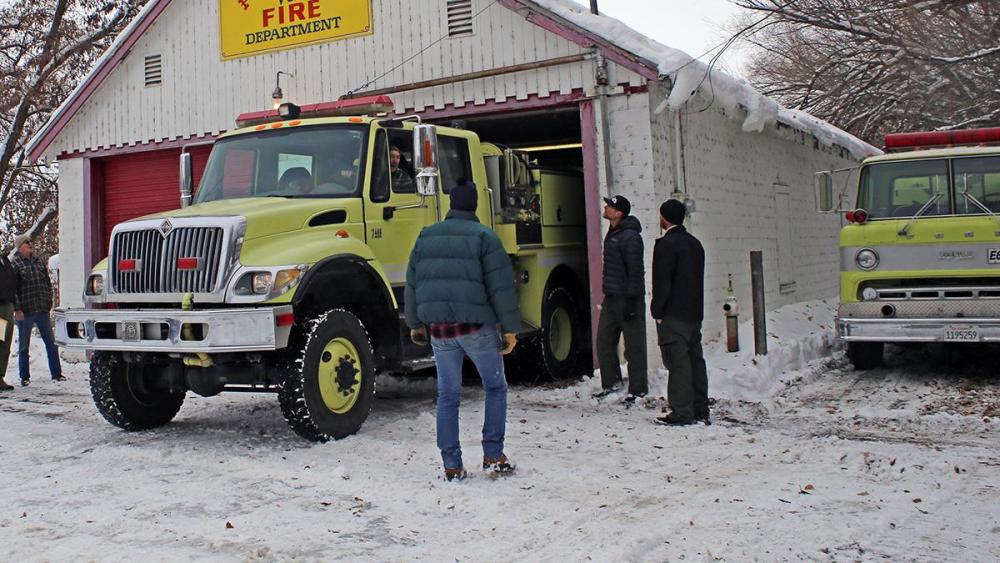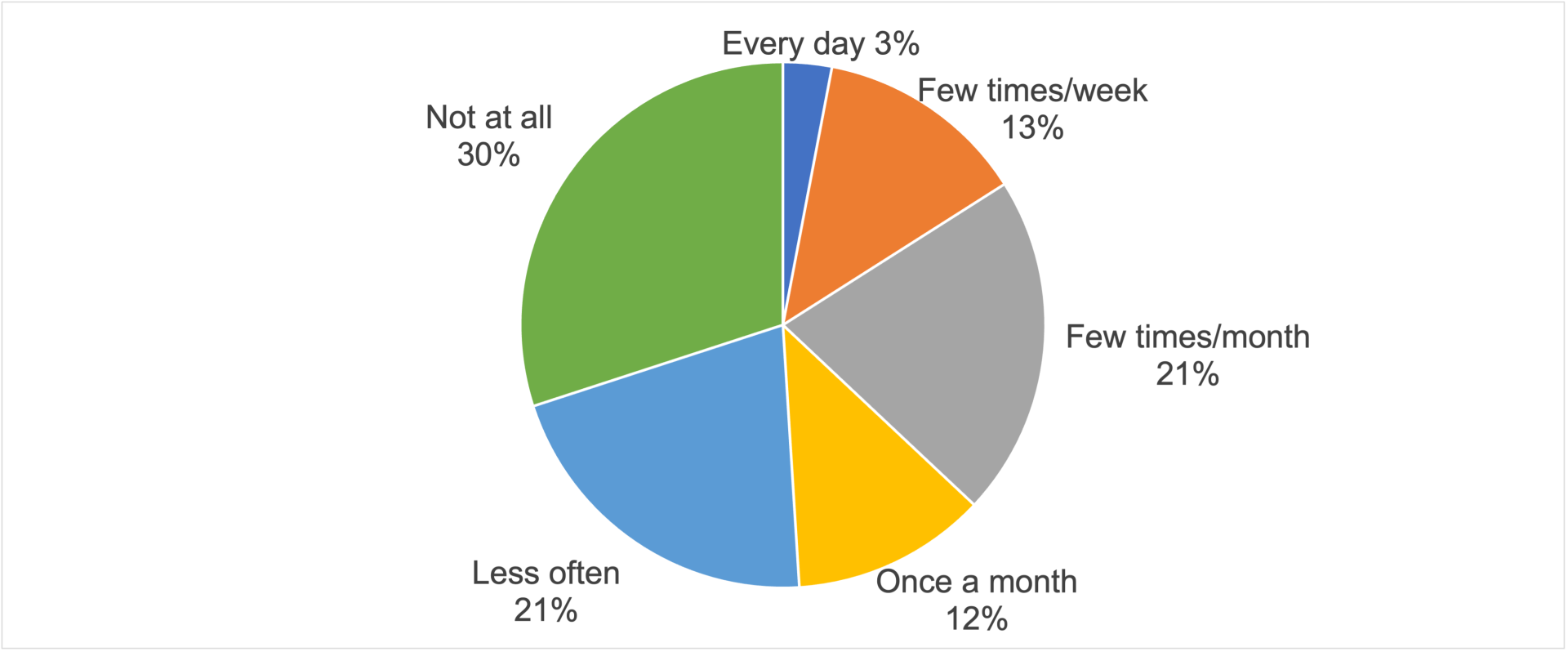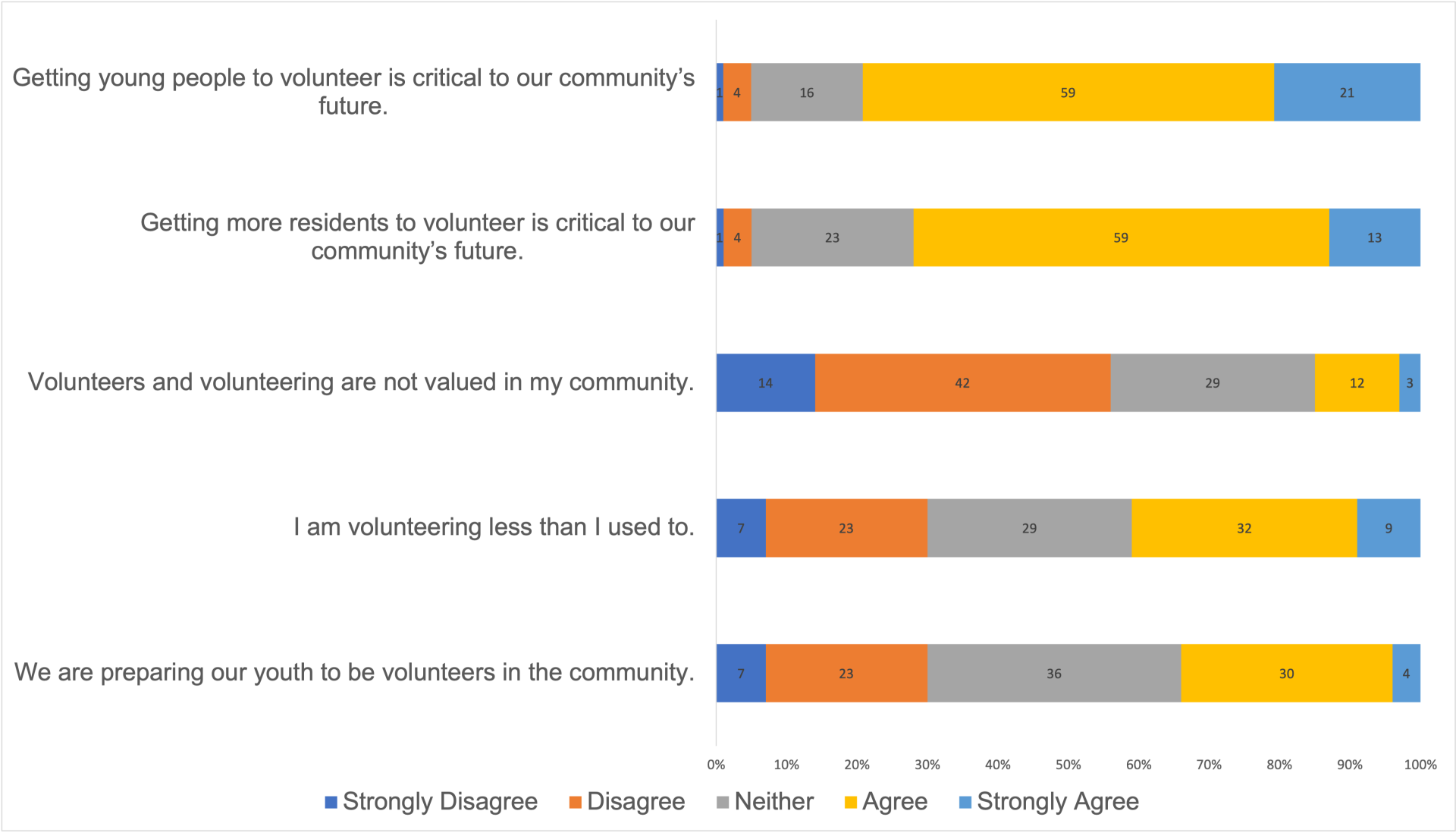
Rural communities rely on volunteers to provide many services and functions. In smaller communities in particular, community members are often needed to provide essential services (such as fire and rescue), organize community events, and support community and youth organizations. Given this need, are rural Nebraskans volunteering in their community? What are their perceptions of volunteering in their community? Do these perceptions differ by age or community size?
In the University of Nebraska-Lincoln’s 2022 Nebraska Rural Poll, respondents were asked how often they did various interactions with others during a typical month in the last year, including volunteering. Many rural Nebraskans say they spend time volunteering for organizations or associations in their community at least a few times a month. Almost 4 in 10 rural Nebraskans spent time volunteering for any organization or association at least a few times a month during the past year. In fact, 7 in 10 spent at least some time volunteering during the past year.
Figure 1. How often rural poll respondents spent time volunteering during a typical month in the past year.

Persons living in or near mid-sized communities are the community-size group most likely to spend time volunteering for an organization or association. Over 4 in 10 persons living in or near communities with populations ranging from 1,000 to 4,999 spend time volunteering at least a few times per month, compared to just over three in ten persons living in or near the largest communities.
When comparing age groups, persons between the ages of 30 and 39 are the group most likely to spend time volunteering. Over 4 in 10 persons in their 30s spend time volunteering at least a few times per month, compared to approximately one-third of persons between the ages of 19 and 29 and persons age 50 to 64.
The respondents were also given a list of statements to measure their perceptions of volunteering in their community. They indicated the extent to which they agreed or disagreed with each statement. Overall, rural Nebraskans believe volunteering is important to their community. Over one-half (56%) disagree that volunteers and volunteering are not valued in their community. And over 7 in 10 agree that getting more residents to volunteer is critical to their community’s future and that specifically getting young people to volunteer is critical to the community’s future.
However, despite thinking it is vital to have youth volunteer, opinions are mixed on whether they are being prepared to be volunteers in the community. Just over one-third (34%) agree that youth are being prepared to be volunteers in the community, while 3 in 10 disagree. And, even though most believe in the importance of volunteering, many rural Nebraskans agree that they are volunteering less than before. Just over 4 in 10 agree that they are volunteering less than they used to, while 3 in 10 disagree with the statement.
Figure 2. Opinions about volunteering

Persons living in or near the smallest communities are most likely to agree that getting more residents to volunteer and getting young people to volunteer are critical to their community’s future. Eight in 10 persons living in or near the smallest communities agree that getting more residents to volunteer is critical to their community’s future. Six in 10 persons living in or near communities with populations ranging from 5,000 to 9,999 share this opinion.
Older persons are likelier than younger persons to say they are volunteering less. Just over one-half of persons 65 and older agree that they are volunteering less than they used to, compared to just over 3 in 10 persons age 30 to 39.
Similar to leadership positions, often in rural communities (especially smaller ones) it is the same people serving in multiple volunteer roles in their communities. This can lead to the burnout of those volunteers. This could partially explain the finding that older people are volunteering less than they have in the past. And it also illustrates the importance of getting more youth and young adults to volunteer in the community so that the workload can be shared. Rural Nebraskans recognize the importance of volunteering in their communities. Getting more residents to step up to fill those roles will be vital to their community’s future.